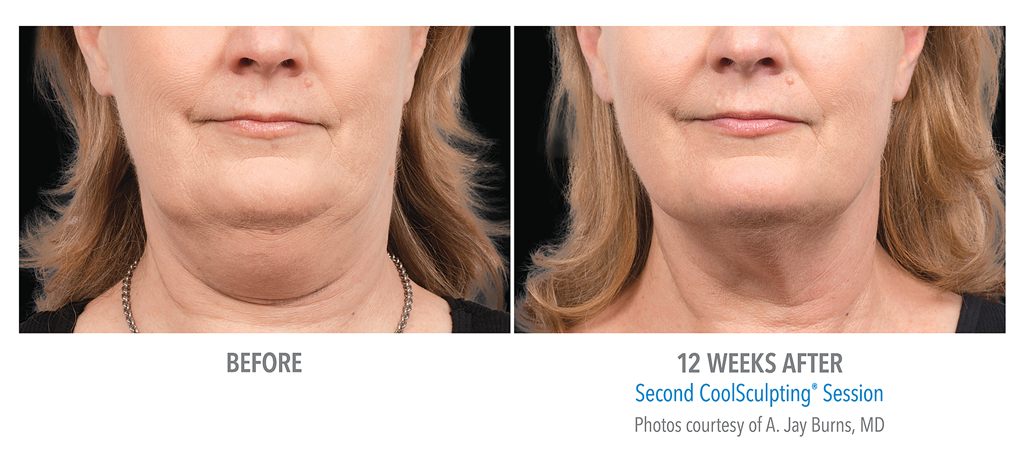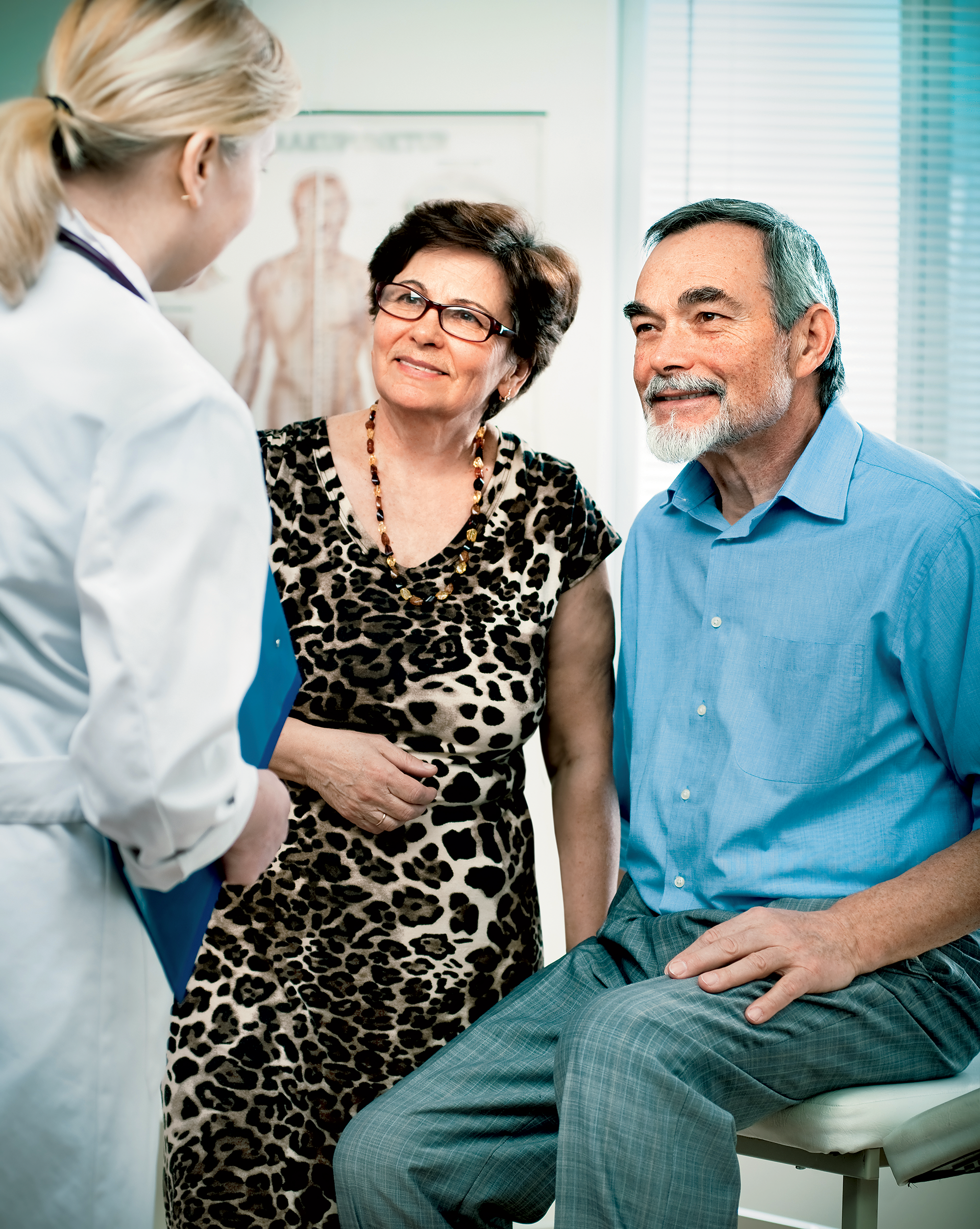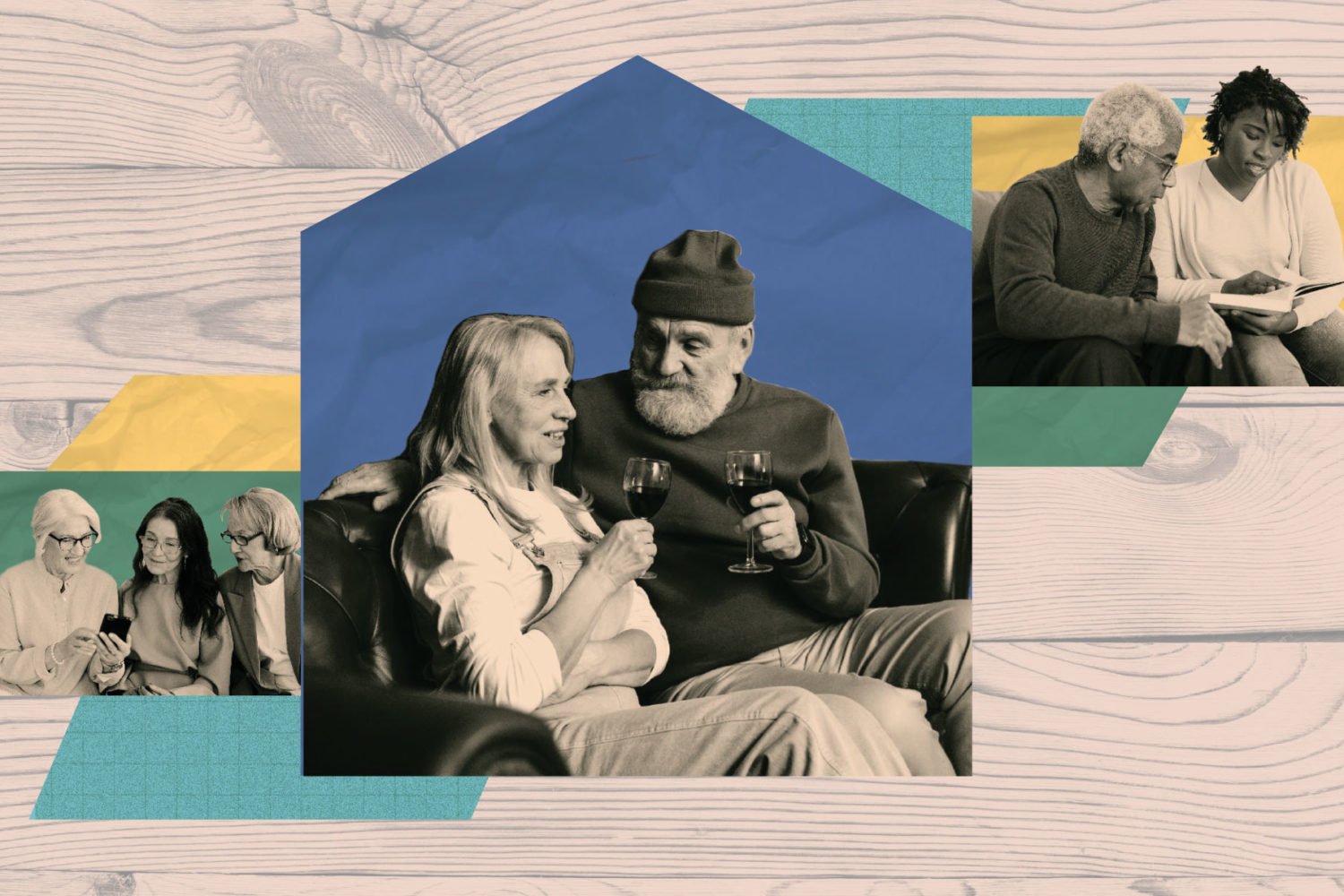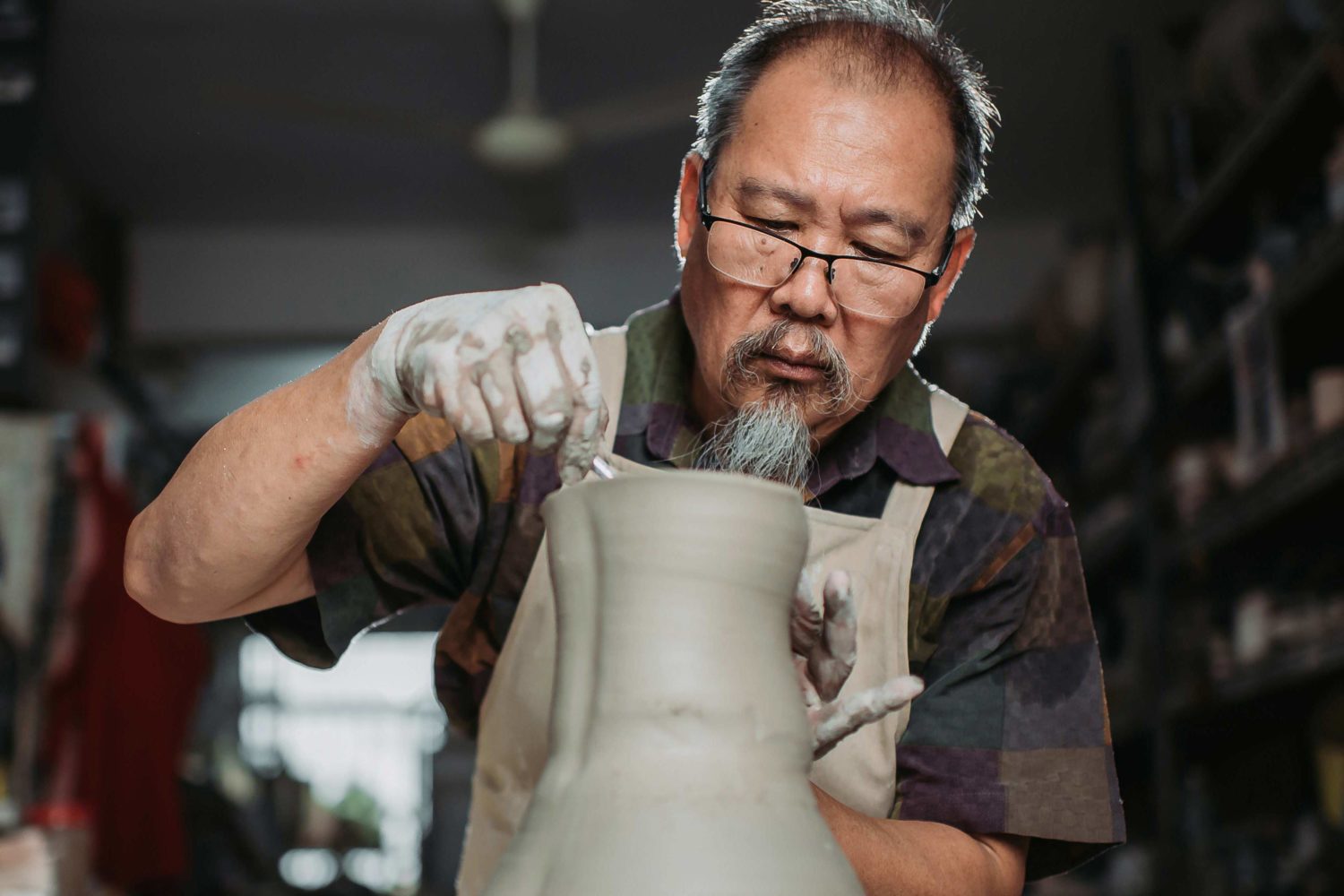The signs of aging may already be noticeable to you: fuzzier vision, slower walking pace, thicker torso. And while people say that age is just a number, it’s unavoidable.
Still, seniors can take some precautionary steps to stave off health issues. “As we age, we develop an increased risk of osteoporosis, breast cancer, lung cancer, and driving accidents,” among other situations, says Dr. Theresa Stone, a primary care physician in downtown DC and a 2012 Washingtonian Top Doctor. Heart disease and Alzheimer’s are two other major issues she watches for.
When senior patients come into her office, Dr. Stone recommends various tests, such as a colonoscopy, mammogram, and depression screen. She also tests for hepatitis C; baby boomers are five times more likely to have contracted it without showing symptoms, but if undiagnosed, it leads to liver diseases and cancer. She checks blood pressure, BMI, and cholesterol, and recommends a Mediterranean diet—lots of plant-based vegetables, legumes, nuts, nutritious fish oils, and healthy fats. She recommends balance exercises to avoid falls, one of the elderly’s biggest concerns.
Dr. Stone also reviews the patient’s medications to make sure they don’t interact with each other. “Polypharmacy is a big problem,” she says, particularly since medications are prescribed by different doctors. She recommends patients bring in all their medicines, including vitamins and supplements, for review.
Some other important health exams for seniors include:
Hearing
Seniors should have a baseline hearing test around ages 55-60, particularly if the patient mentions having a harder time understanding people speak or a family member says that the senior is showing telltale signs of hearing loss, such as increasing the television volume more often or missing parts of conversations. It’s important to pay attention to the decreased ability, since hearing loss affects more than just the ears.
“Studies have shown that there’s a correlation with memory loss, balance issues, psychosocial problems, isolation, and depression when we do not stimulate our ears,” says Dr. Sandra Romano of the Arlington Hearing Center.
Dr. Gina Crovato of the Hearing Associates of Northern Virginia agrees. “People start to become reclusive or miss out on their favorite activities—musical performances, lectures,” she says. However, the transition is slow, and many are reluctant to acknowledge the change. “The average person waits seven years between when they should do something about it and when they actually do,” she says. “That’s seven years of missed conversation.”
A Johns Hopkins study found that untreated hearing loss accelerates cognitive decline in older adults by 30 to 40 percent, and MRIs have shown atrophy in the part of the brain responsible for sound and speech as a result. However, once fitted with hearing aids, the barriers to staying mentally sharp and socially active are removed. “Research shows people with hearing loss who use hearing aids are more likely to be optimistic and feel more confident and engaged in life,” says ENT physician Dr. Seth Oringher, chief of otolaryngology at Sibley Hospital-Johns Hopkins Medicine and director of the Feldman Hearing Studio in Chevy Chase.
Not only that, hearing aid technology has come a long way—they’re smaller, more comfortable, more discreet, and can even be controlled by a smartphone. Some enable seniors to stream audiobooks or music while going for a walk or working in the garden.
Eye care
As early as 40, people should have a thorough eye exam with an ophthalmologist. The doctor can screen for diseases such as glaucoma (loss of peripheral vision) and cataracts (cloudy or dim lens), both of which, if undetected, can lead to blindness, says Dr. Mark Whitten, medical director of the Whitten Laser Eye with offices in DC, Richmond, and Charlotte Hall, MD. If caught early, glaucoma can be easily treated with drops. Cataracts are inevitable, like gray hair and wrinkles, but can be corrected with surgery. The doctor removes the existing lens and replaces it with an artificial lens implant. Newer lens implants can now correct for reading and astigmatism. Another newer procedure is the Raindrop Corneal Inlay, where the cornea is deepened so the patient no longer requires reading glasses.
Screening for dry eye is also common as people age, says Dr. Shilpa Rose, an ophthalmologist at Whitten Laser Eye. Often misdiagnosed, dry eye is caused by changes in hormones, medication, and the increased prevalence of smartphones and digital devices. “If you don’t have good lid tone, you don’t generate the entire blink system,” which affects tear production and increased evaporation, Dr. Rose explains. Dry eyes can now be treated with artificial tears, vitamin supplements, or LipiFlow, a thermal pulsation device.
Oral care
As you age, there’s no reason your teeth and mouth should experience pain, either. “You should never have to think about your teeth,” says Dr. Pamela Marzban, a dentist in Burke. The same applies to the jaw—if there’s clicking or difficulty opening the mouth wide, there’s a chance it’s arthritis or temporomandibular joint dysfunction (TMD). Any sensitivity lasting more than two weeks or bleeding should also be checked. Dentures should also be fitted properly to avoid pain.
Some seniors may have more difficulty maintaining good oral health due to medications or dexterity and their ability to hold their toothbrush, says Dr. Karl A. Smith, a periodontist with offices in Waldorf, MD. and Alexandria. Poor oral health can lead to tooth loss, heart disease and stroke, cancers, or even dementia. “The average patient with teeth lives ten years longer and healthier than the patient without teeth,” he explains. For that reason, it’s important to visit your dentist or periodontist regularly.
Obstructive sleep apnea is another serious condition in seniors, in which the airway closes and carbon dioxide builds up in the body, causing a stroke or heart attack. Dr. Marzban recommends a polysomnogram to diagnose. Another condition is dry mouth, caused by long-term medications. A drier mouth is more acidic, causing decay, periodontal disease, and bad breath. Dr. Marzban says it can be managed with regular fluoride treatments and sometimes by changing dietary habits, such as cutting out caffeine.
Healthy Habits
Changing lifestyle habits can be difficult, says Dr. David Leonard, a top-rated Fairfax family physician and geriatrician. “It may take a significant emotional event, such as a cancer scare, an episode of chest pain, or an emergency room visit, for a person to take action to improve their health,” he says. However, Dr. Leonard views laboratory and test results as a way to motivate patients to change behavior, rather than to punish them. “I reinforce the positives and work together as a team to address how to lessen the negatives. My goal is to reduce my patients’ health risks and maximize their quality of life.”
***
A Younger You

Not only can active seniors continue to strengthen their bodies and improve their health, they can also feel good about how they look. While some patients still choose traditional facelifts, liposuction, and tummy tucks, many are tending towards non-invasive procedures, says Dr. Burton Sundin of the Virginia Institute of Plastic Surgery and MBody: Modern Body Contouring and Laser Center. For example, many active seniors visiting the 2015 Washingtonian Top Doctor’s practice choose Coolsculpting®, a popular non-surgical procedure that freezes and reduces areas of exercise-resistant fat. He also offers Infini Radiofrequency for face and neck skin tightening, and injectables such as Botox, Radiesse, Voluma, and Juvederm.
“Plastic surgery can be psychologically beneficial and renews your self-esteem in your 50s and 60s,” Dr. Sundin says. “It is safe for seniors to have cosmetic procedures, but you need to seek out a qualified, board-certified plastic surgeon who can advise you properly.”










